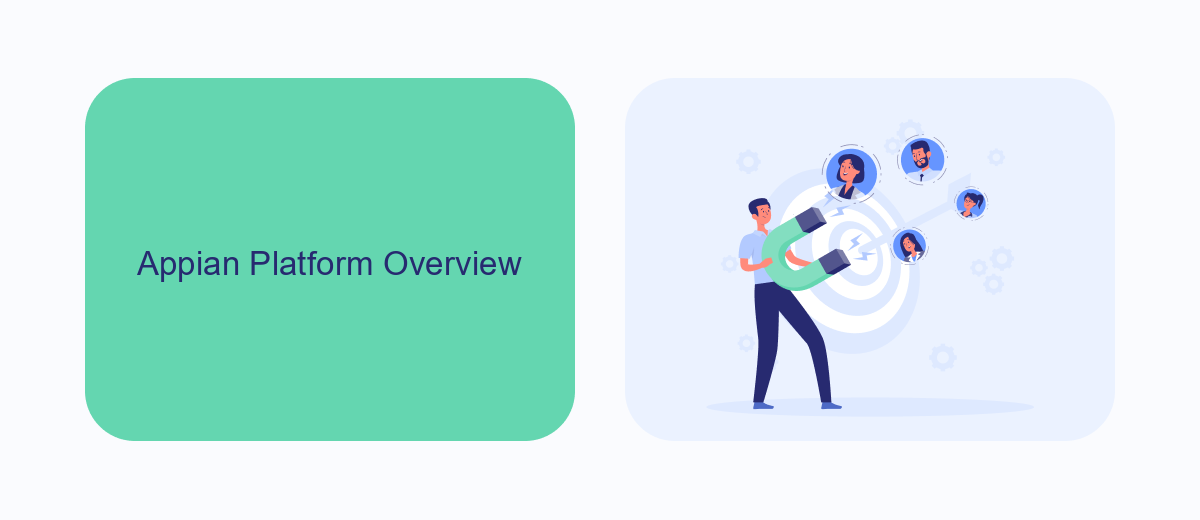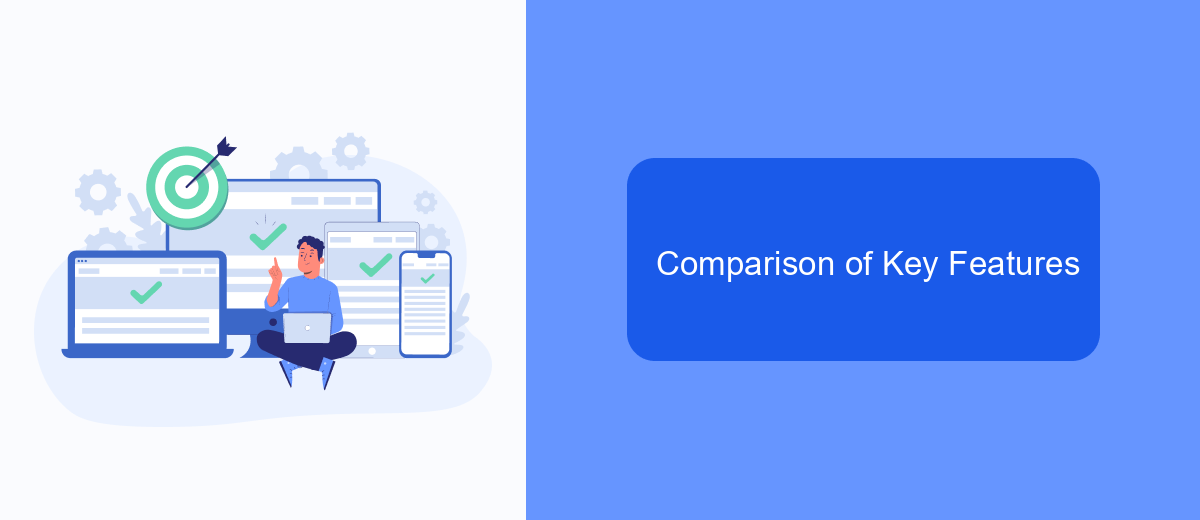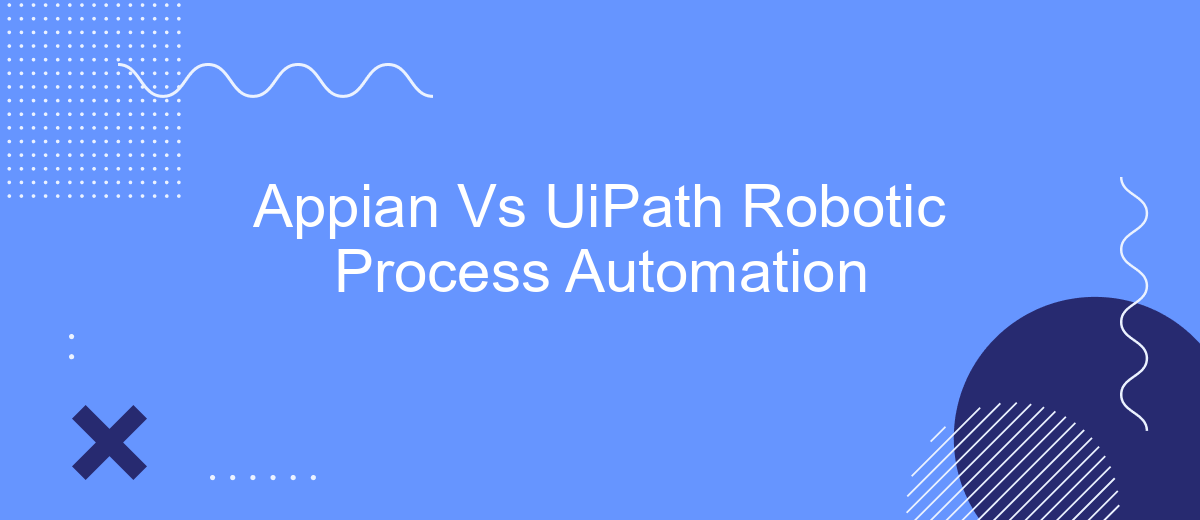In the rapidly evolving landscape of Robotic Process Automation (RPA), Appian and UiPath have emerged as two leading platforms, each offering unique strengths and capabilities. This article delves into a comparative analysis of Appian and UiPath, examining their features, usability, and overall performance to help businesses determine which solution best aligns with their automation needs and strategic goals.
Introduction
In today's rapidly evolving digital landscape, businesses are increasingly turning to Robotic Process Automation (RPA) to streamline operations and enhance productivity. Two leading RPA platforms, Appian and UiPath, offer robust solutions for automating repetitive tasks and optimizing workflows. Understanding the strengths and capabilities of each platform is crucial for organizations aiming to implement effective automation strategies.
- Appian: Known for its low-code development environment and powerful process management capabilities.
- UiPath: Renowned for its user-friendly interface and extensive library of pre-built automation components.
- Integration Services: Tools like SaveMyLeads can facilitate seamless integration between various applications and RPA platforms.
Choosing the right RPA tool depends on specific business needs, existing IT infrastructure, and long-term automation goals. By comparing Appian and UiPath, businesses can make informed decisions that align with their operational objectives. Additionally, leveraging integration services such as SaveMyLeads can further enhance the efficiency and effectiveness of the chosen RPA solution.
Appian Platform Overview

Appian is a leading low-code automation platform that enables organizations to build powerful applications and automate complex processes with minimal coding effort. The platform provides a unified environment where users can design, automate, and optimize their workflows, leveraging an intuitive drag-and-drop interface. Appian's robust capabilities include dynamic case management, intelligent document processing, and advanced analytics, making it a versatile solution for various business needs.
One of the standout features of Appian is its seamless integration capabilities. The platform supports integration with a wide range of third-party systems and services, facilitating smooth data exchange and process automation. For instance, services like SaveMyLeads can be easily integrated to automate lead generation and management processes, enhancing operational efficiency. Appian's integration framework ensures that businesses can connect their existing tools and systems, creating a cohesive and streamlined digital ecosystem.
UiPath Platform Overview

UiPath is a leading Robotic Process Automation (RPA) platform designed to streamline and automate repetitive tasks, enabling businesses to focus on higher-value activities. With its user-friendly interface and extensive capabilities, UiPath empowers organizations to deploy bots that mimic human actions and integrate seamlessly with existing systems.
- Automation Hub: Centralized platform for managing automation ideas and projects.
- Studio: A powerful development environment for creating automation workflows.
- Orchestrator: A web-based application for managing, monitoring, and deploying bots.
- AI Fabric: Integrates AI models into RPA workflows for advanced automation.
- SaveMyLeads Integration: Simplifies the process of connecting UiPath with various third-party applications.
UiPath's comprehensive suite of tools ensures that businesses can quickly scale their automation efforts while maintaining control and oversight. The platform's flexibility and integration capabilities, including services like SaveMyLeads, make it an ideal choice for organizations seeking to enhance efficiency and drive digital transformation.
Comparison of Key Features

When comparing Appian and UiPath for Robotic Process Automation (RPA), it is important to consider their key features. Appian is known for its low-code automation capabilities, allowing users to design and deploy applications rapidly. UiPath, on the other hand, excels in providing a comprehensive suite for RPA, focusing on automating repetitive tasks with high precision.
Both platforms offer unique advantages. Appian integrates business process management (BPM) with RPA, providing a holistic approach to process automation. UiPath specializes in attended and unattended automation, making it suitable for diverse business needs. Integration capabilities are crucial for both platforms, and services like SaveMyLeads can enhance these integrations by automating data flow between various applications.
- Appian: Low-code development, BPM integration, rapid deployment
- UiPath: Comprehensive RPA suite, attended and unattended automation, high precision
- SaveMyLeads: Automates data flow, enhances integration capabilities
In conclusion, the choice between Appian and UiPath depends on the specific needs of your organization. Appian is ideal for those seeking a combined BPM and RPA solution, while UiPath is better suited for businesses looking for robust and precise task automation. Utilizing integration services like SaveMyLeads can further streamline your automation processes.
Conclusion
In conclusion, both Appian and UiPath offer robust solutions for Robotic Process Automation (RPA), each with its unique strengths and capabilities. Appian excels in its low-code platform, making it easier for businesses to develop and deploy applications quickly. Its strong focus on process management and integration capabilities makes it an excellent choice for organizations looking to streamline complex workflows. On the other hand, UiPath stands out for its comprehensive suite of RPA tools, which are designed to automate repetitive tasks efficiently. Its user-friendly interface and extensive community support make it a preferred option for many businesses aiming to enhance productivity through automation.
When considering integration and automation, services like SaveMyLeads can further enhance the capabilities of both Appian and UiPath. SaveMyLeads simplifies the integration process, allowing businesses to connect various applications seamlessly without extensive coding. This can be particularly beneficial for organizations looking to maximize the efficiency of their RPA initiatives. Ultimately, the choice between Appian and UiPath will depend on the specific needs and goals of your organization, but leveraging additional tools like SaveMyLeads can provide a significant advantage in achieving a fully integrated and automated workflow.
FAQ
What are the primary differences between Appian and UiPath in terms of Robotic Process Automation (RPA)?
Can Appian and UiPath be used together in a single automation project?
Which platform is more suitable for non-technical users?
How do these platforms handle scalability and enterprise-level deployment?
What services are available to help implement and integrate these automation platforms?
What do you do with the data you get from Facebook lead forms? Do you send them to the manager, add them to mailing services, transfer them to the CRM system, use them to implement feedback? Automate all of these processes with the SaveMyLeads online connector. Create integrations so that new Facebook leads are automatically transferred to instant messengers, mailing services, task managers and other tools. Save yourself and your company's employees from routine work.
